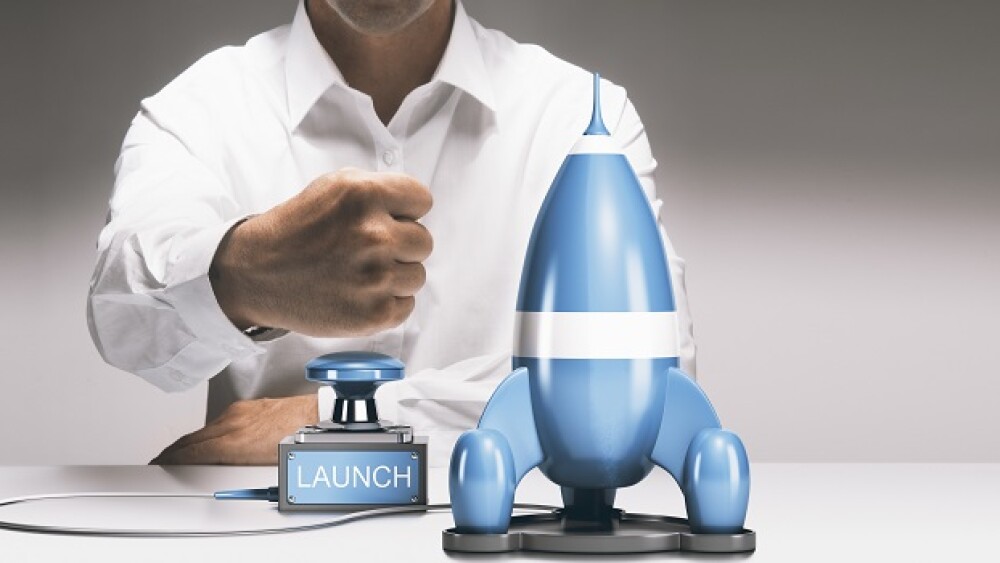Some accelerators come out of government and academic institutions, while others have specific big pharma backing. Many use a combination of all of the above, while some are private in nature linked to venture capital firms. Let’s look at some of the accelerators linked to big pharma.
A biotech accelerator is not exactly the same thing as a biotech incubator, although they’re often used interchangeably. Theoretically, an “incubator” provides research facilities, services and consulting. An “accelerator,” does more or less the same thing, but is supposed to “accelerate” startups from concept to company, often through a boot camp-like program.
RebelBio wrote last year, “Bio-incubators collect the rent and make sure the gas (nitrogen, CO2) is turned on. If they are good, they will provide some core lab facilities. Obviously, if you need lab space and it’s going at the right price, then it’s a valuable facility. They don’t incubate. In fact, some are more like refrigerators: they’ll preserve your company for a while but, if you spend too long there, you’ll remain in stasis or even decline.”
For the sake of this article, both will just be called accelerators with a definition of: a private or public entity designed to support the growth and development of startup biotech companies with facilities, equipment and consultative services. It should be emphasized that in some areas, such as Europe, there is a clear distinction between incubators and accelerators.
Some accelerators come out of government and academic institutions, while others have specific big pharma backing. Many use a combination of all of the above, while some are private in nature linked to venture capital firms. Let’s look at some of the accelerators linked to big pharma.
- JLABS. JABS is part of Johnson & Johnson Innovation, and is called a “global network of open innovation ecosystems, enabling and empowering innovators to create and accelerate the delivery of life-saving, life-enhancing health and wellness solutions to patients around the world.”
On February 8, 2018, Belgium-based JLINX incubator, a collaboration between Janssen Pharmaceutica NV and Bioqube Ventures launched in March 2016, became part of the J&J Innovation network, transitioning into a JLABS. That became the first JLABS in Europe and the 10th in the world. It will accommodate up to 30 life science startups and is located at the heart of the Beerse Janssen R&D Campus.
- Bayer’s Grants4Apps. Germany-based Bayer founded Grants4Apps in 2013, originally to provide grants to innovative healthcare apps. Now the program has expanded to assist life science and health care startups grow. It operates in over 13 countries, and also has programs such as G4A Accelerator. (In Europe, there is a more nuanced distinction between accelerators and incubators than in the U.S.).
To date, it has supported more than fifty startups and invested 900,000 euros. It provides workspace, mentorship, meetups and networking, access to Bayer experts, financial awards, promotion, partnerships, and a Dealmaker and Generator program for mature companies.
It launched its G4A program in the U.S. in 2017.
- AstraZeneca Incubator. AstraZeneca Incubator offers free access to its modern drug discovery labs and other onsite facilities, in addition to access to scientific and business development mentoring. It is particularly interested in companies working on therapeutics in oncology, cardiovascular, metabolic, respiratory, inflammation or autoimmune diseases, or neuroscience. The sites are at their facilities at 35 Gatehouse Drive in Waltham, Massachusetts. It offers about 12,000 to 35,000 rental square feet of available laboratory and office facilities.
Earlier this year, AstraZeneca supported the launch of a new bio-incubator and life science accelerator, Accelerate@Babraham in Cambridge, UK, along with One Nucleus and RxCelerate.
- Illumina Accelerator. Illumina, the leader in developing gene sequencers, has Illumina Accelerator, which offers mentorship, financial support, and access to sequencing systems, reagents and lab space. It has a six-month funding cycle, and offers access to its $40 million Illumina Accelerator Boost Capital via partners at Viking Global Investors, a subscription to BaseSpace Correlation Engine and BaseSpace Cohort Analyzer and other genomic sequencing tools, coaching and a fully equipped lab and office space in the San Francisco Bay Area.
Companies part of the Illumina Accelerator include Biome Makers, Boost Biomers, Checkerspot, Chimera Bioengineering, Haystack Sciences and Resilient Biotics.





